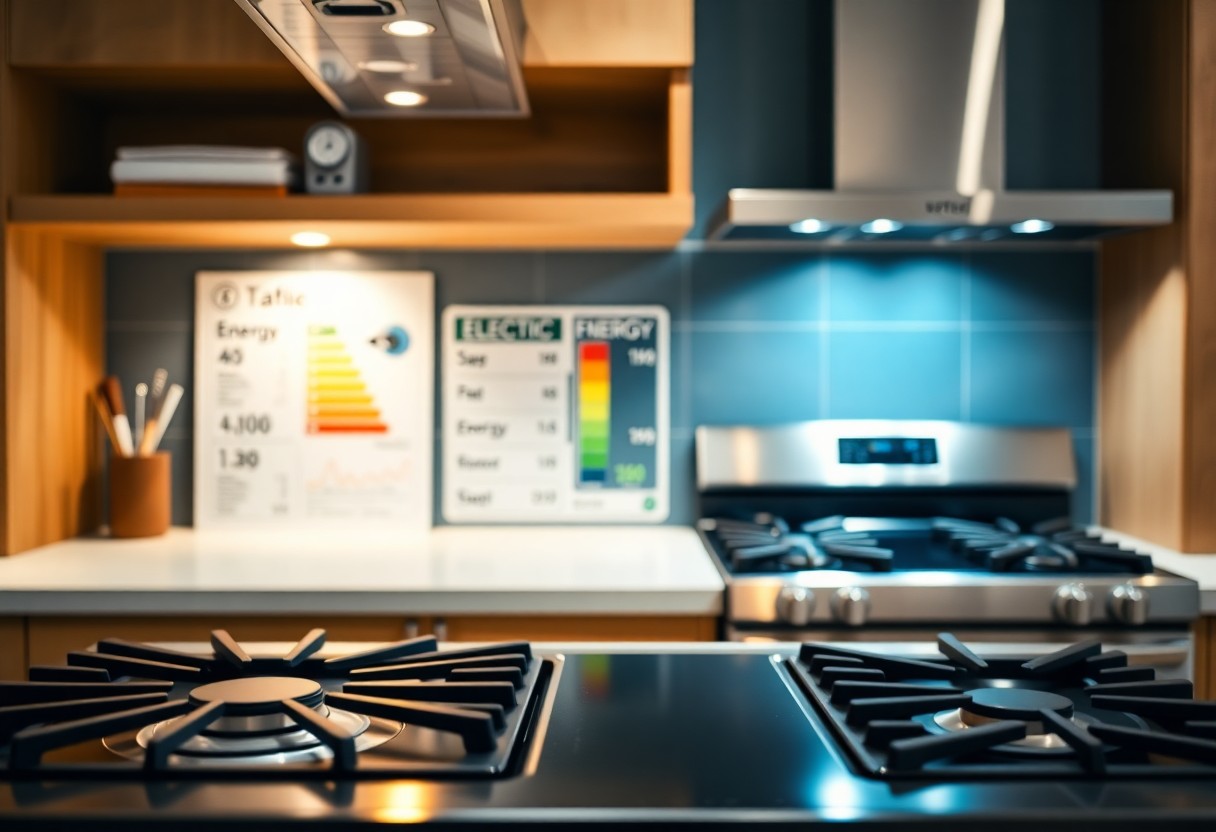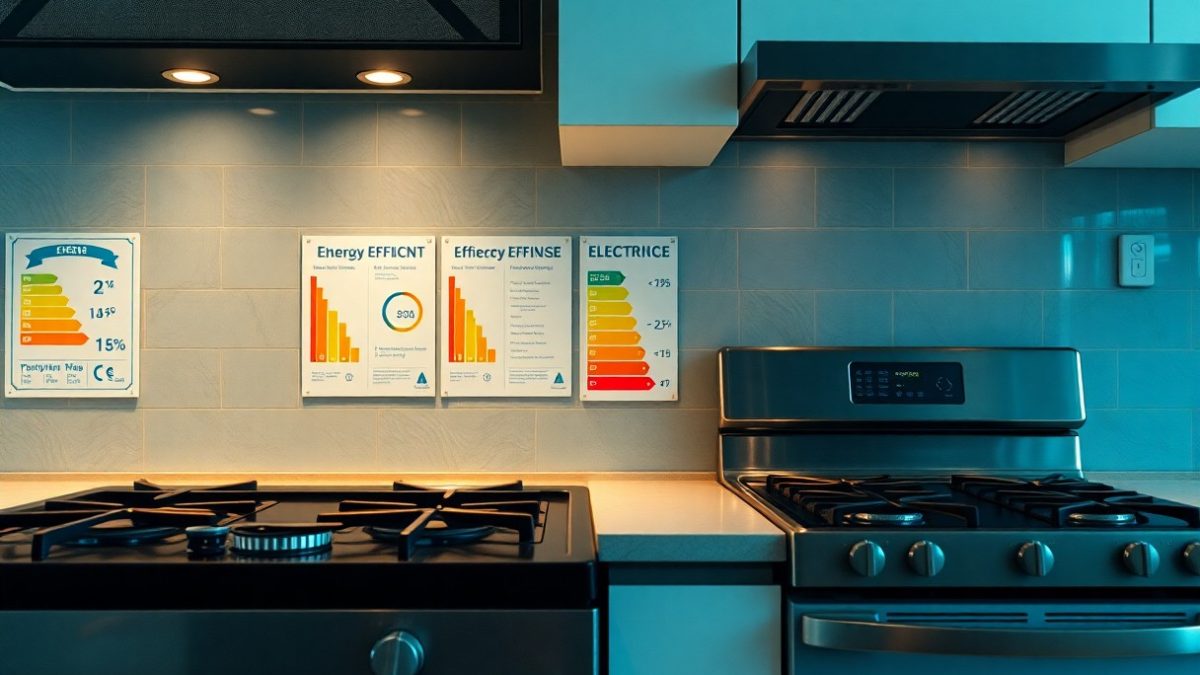It’s easy to be swayed by the myriad of opinions surrounding the efficiency of gas versus electric appliances. You may have heard various anecdotes and claims, but many of these beliefs are steeped in myth rather than fact. In this post, you’ll uncover the realities behind appliance efficiency, helping you make informed choices that align with your needs and values. Let’s demystify the quixotic stories you might have encountered and examine the true factors influencing efficiency in your home appliances.
The Historical Context of Gas and Electric Appliances
Your understanding of gas and electric appliances can be enriched by exploring their historical context. For over a century, both energy sources have shaped the way we cook, heat, and power our homes. Initially, gas was the primary choice for cooking, but the rise of electricity in the 20th century introduced a new level of convenience and versatility, influencing consumer behaviors and technology advancements. As you look deeper into history, you may find how societal shifts and technological progress have defined the relationship between these two energy sources throughout the years.
Evolution of Appliance Technology
One of the significant factors in appliance efficiency is the evolution of technology itself. Initially, gas appliances dominated the market due to their importance in heating and cooking, but as electricity became more widespread, innovations in electric appliance design improved performance and efficiency. Over decades, manufacturers have invested in research and development, leading to modern electric appliances that often outperform their gas counterparts in energy efficiency and user convenience, providing an array of options for your household needs.
Energy Sources and Environmental Impact
Sources of energy can have a profound impact on the environment, influencing your choice between gas and electric appliances. Fossil fuels like natural gas contribute to greenhouse gas emissions, while electric appliances can be powered by renewable sources, potentially reducing your carbon footprint. Understanding the energy mix in your locality can help you make informed decisions about the efficiency and sustainability of the appliances you choose.
In fact, the environmental implications of energy sources are becoming increasingly significant in today’s climate-conscious world. The shift toward renewable energy sources such as solar and wind power means that electric appliances connected to a green grid can offer greater sustainability than traditional gas options. As you consider your own energy use and appliance choices, awareness of these factors can empower you to make decisions that benefit both your home and the planet.
Efficiency Metrics: Comparing Gas and Electric Appliances
While gas and electric appliances are often compared for their efficiency, understanding the metrics involved is important. Both types utilize distinct measurement units that reflect their energy consumption. Below is a table illustrating key metrics for gas and electric appliances.
| Gas Appliances | Electric Appliances |
|---|---|
| Measured in BTUs (British Thermal Units) | Measured in Kilowatt-Hours (kWh) |
| Generally deliver higher temperature output quickly | Typically offer more precise temperature control |
BTUs vs. Kilowatt-Hours
To compare gas and electric appliances effectively, it’s important to understand BTUs and kilowatt-hours. BTUs measure the amount of energy needed to raise the temperature of one pound of water by one degree Fahrenheit, while kilowatt-hours quantify energy consumption over time. This differentiation helps you evaluate efficiency based on your heating and cooking needs.
Real-World Efficiency vs. Manufacturer Ratings
Metrics play a vital role in assessing appliance efficiency, but your actual experience may differ from what manufacturers claim. Manufacturer ratings often reflect ideal conditions, which can be misleading when you consider variances such as installation, usage, and maintenance.
In addition, real-world efficiency can be influenced by factors like local energy prices, appliance age, and your specific usage patterns. Understanding how these variables affect everyday performance allows you to make a more informed decision when evaluating the true efficiency of gas versus electric appliances. By considering both manufacturer ratings and real-world experiences, you can better determine what meets your needs most effectively.
Common Myths About Gas Appliances
The myths surrounding gas appliances often lead to misconceptions about their efficiency and reliability. Many people assume that gas appliances are always more energy-efficient than their electric counterparts. However, this is not always the case. For a comprehensive breakdown of the differences, you can read more about Electric Heating vs. Gas Heating – Which Is Right For … – Tetra.
Perceived Cost Savings
Along with the common belief that gas appliances save money, you might find yourself drawn to the appeal of lower utility bills. But this perception doesn’t always reflect the full picture. While gas can be cheaper in some areas, the overall cost depends on various factors such as installation and maintenance costs.
Safety and Health Concerns
With the growing focus on safety, many are concerned about potential hazards from gas appliances. Issues like gas leaks, carbon monoxide poisoning, and improper ventilation are valid worries. It’s imperative to ensure proper installation and regular maintenance.
And while gas appliances can be safe when properly installed and maintained, they still carry inherent risks that you should be aware of. Regular inspections and proper ventilation are key to minimizing these risks. Understanding the signs of gas leaks and investing in carbon monoxide detectors can significantly enhance your home’s safety, giving you peace of mind as you make your appliance choices.
Common Myths About Electric Appliances
Unlike popular belief, electric appliances are not inherently inefficient or inferior to gas models. Many consumers still cling to outdated notions that electric options consume more energy or provide subpar performance. In reality, advancements in technology have significantly improved electric appliances, making them both energy-efficient and highly functional. By shedding these myths, you can make more informed decisions about your kitchen and household needs.
Misconceptions of Higher Energy Use
Across various discussions, one common misconception is that electric appliances use more energy than their gas counterparts. This is not necessarily true, as many electric appliances have been designed to optimize energy efficiency. Factors such as appliance age, maintenance, and specific usage habits play a more significant role in overall energy consumption, making it imperative for you to evaluate appliances based on their efficiency ratings rather than solely on the energy source.
Performance and Cooking Quality
Among consumers, there’s a prevailing myth that electric appliances compromise performance, especially in cooking. Many believe that gas stoves provide better heat control and cooking quality; however, modern electric stoves, especially induction models, can match or even surpass gas in responsiveness and precision.
Considering the latest advancements in electric appliance technology, you’ll find that features like precise temperature control and faster heating times are becoming standard. Electric appliances, particularly induction cooktops, can heat up quickly and distribute heat evenly, allowing for better cooking results. This superior performance can often lead to a more enjoyable cooking experience while ensuring your meals are prepared to perfection. Embracing electric options can enhance your culinary skills and save you time in the kitchen.
The Future of Appliance Technology
Now more than ever, appliance technology is evolving to meet the demands of efficiency and sustainability. As energy costs continue to rise, you can expect innovations that prioritize not only performance but also your long-term savings and environmental impact. This future landscape promises an array of solutions designed to make your home smarter, greener, and more cost-effective.
Innovations in Energy Efficiency
Across various sectors, innovations in energy efficiency are revolutionizing appliance design. Manufacturers are investing in cutting-edge technologies that minimize energy consumption while maximizing performance. By opting for these advanced products, you can significantly reduce your utility bills and your carbon footprint, contributing to a more sustainable future.
Hybrid and Smart Appliance Technologies
Among the most exciting advancements, hybrid and smart appliance technologies are redefining how you interact with your home. These appliances seamlessly combine functionalities and adapt to your lifestyle, offering unprecedented control over energy usage and convenience.
Considering the implications of hybrid and smart technologies, you’ll find that these innovations allow you to customize energy consumption based on real-time data and personal preferences. Integration with your smart home ecosystem means you can monitor and manage appliances through your devices, maximizing efficiency and minimizing waste. By harnessing these advancements, you can enjoy enhanced functionality while actively participating in a more sustainable living environment.

Consumer Choices and Considerations
Many factors influence your decision between gas and electric appliances. Consider aspects such as efficiency, energy sources, installation requirements, and even local regulations. Your personal preferences and specific needs can impact which option will not only save you money but also enhance your daily routines. Take the time to weigh these elements carefully to make an informed choice that aligns with your lifestyle.
Evaluating Personal Needs and Lifestyle
Beside the technical specifications, you should assess how each type of appliance fits into your daily life. Reflect on your cooking habits, family size, and any environmental commitments you may have. These factors can significantly influence your satisfaction with either gas or electric appliances, guiding you toward the best option for your unique lifestyle.
Long-Term Costs vs. Initial Investment
At the outset, gas appliances may have a lower purchase price than their electric counterparts. However, long-term factors like energy efficiency, maintenance costs, and fuel prices can alter your overall expenditure. Weighing these aspects will help you decide which appliance type is more financially viable in the long run.
The decision between gas and electric appliances often hinges on evaluating long-term costs against initial investments. While gas appliances might appear cheaper upfront, fluctuating fuel prices and potential maintenance needs can lead to higher costs over time. On the other hand, electric appliances generally offer stable energy rates and minimal upkeep, but their initial prices may be higher. Calculating total cost of ownership based on your expected use will guide you to the most economical choice for your situation.
To wrap up
Considering all points, it’s vital for you to navigate the quixotic myths surrounding gas and electric appliance efficiency with a discerning eye. While gas appliances often boast faster heating and lower operating costs, electric appliances can provide notable energy efficiency and sustainability benefits. Your decision should be based on factors like usage patterns, local energy costs, and personal values regarding environmental impact. By understanding the nuances of each type, you can make an informed choice that suits your needs and contributes to your overall energy strategy.



